Does Columbus Deserve a Holiday?
PLUS: A exciting new era for The Preamble!
From the editor:
The Preamble is entering an exciting new era, and you’re at the center of it. We’ll soon be publishing one deep, reader-guided digital magazine each week. Become a paid subscriber now to help decide what we cover and sustain independent content that meets the moment. Powered by our readers, not backed by billionaires.
Click here to take 20% off your annual membership
Read more about our new magazine here, and paid subscribers: see the important poll at the end of this article!
—Sharon McMahon, Founder
Does Columbus Deserve a Holiday?
Today represents a fundamental divide in how Americans view their history. For some, October’s second Monday is Columbus Day, honoring the explorer who “discovered” the Americas. For others, it is Indigenous Peoples’ Day, recognizing the cultures that thrived here for thousands of years before European arrival. Christopher Columbus stands at the center of the debate.
The battle over memory
The summer and fall of 2020 marked a turning point in America’s relationship with Columbus. Between June and December, at least 33 Columbus statues were removed or scheduled for removal across the country, and many others were vandalized. Boston’s statue was beheaded. Others were covered in paint. Some cities voted through official channels to remove their monuments, while others saw protesters take matters into their own hands.
This wave of removals sparked an intense counter-movement. Many Italian-Americans and conservative voices condemned these actions, arguing that activists were deliberately attacking a foundational figure in American history. The debate forces us to confront an essential question: Who was Christopher Columbus, and should we celebrate or condemn his legacy?
The evolution of Columbus Day
Understanding how Columbus Day became a federal holiday reveals much about American politics and identity. The first major Columbus celebration occurred in 1792, organized by a secret society of Irish Catholics exactly 300 years after his arrival in what is now the Bahamas. But the holiday’s official recognition came from tragedy and diplomatic necessity.
In 1891, an anti-immigrant mob lynched eleven Italian Americans in New Orleans, creating an international crisis that threatened war with Italy. To ease tensions, President Benjamin Harrison proclaimed a one-time national Columbus Day observance in 1892 (Columbus had become a cultural hero for Italian Americans as it is thought that he was born in Genoa, a part of modern-day Italy). The gesture aimed to show respect for Italian Americans and repair diplomatic relations. This temporary measure became permanent when President Franklin D. Roosevelt established Columbus Day as a paid federal holiday in 1934. (Learn more about the 1891 lynching in this National Geographic series I made last year.)
The historical Columbus: what we know
Reconstructing Columbus’s true character presents significant challenges. Our knowledge comes from limited and often biased sources: his own diaries and letters, accounts from contemporaries, writings by his son Ferdinand, and testimonies from figures like Bartolomé de las Casas, a Dominican friar who arrived shortly after Columbus. Each source reflects its author’s perspective and agenda, making objective assessment difficult.
The basic facts are clear: Columbus was a skilled navigator who completed four Atlantic voyages between 1492 and 1504 for the Spanish Crown. He sought a western route to Asia but instead reached the Caribbean. Upon arrival, he documented his impressions of the native inhabitants, describing them as kind and generous. He also wrote openly about his intentions to convert them to Christianity and to extract information about valuable resources, chiefly gold.
Contrary to common belief, Columbus was not the first European to reach North America. Viking expeditions led by Erik the Red had achieved this centuries earlier. This correction matters because it challenges the narrative of Columbus as a unique pioneer, allowing us to examine his actual impact more honestly.
The dark reality: evidence from primary sources
The controversy surrounding Columbus stems primarily from his own documented actions and those of his contemporaries. His personal diary contains damning admissions about enslaving indigenous people. He wrote that he “took by force some Indians from the first island” to learn about their societies and locate resources. He kidnapped natives to bring back to Spain, many of whom died during the voyage. Later, he wrote explicitly about his plans for mass enslavement: “Let us in the name of the Holy Trinity go on sending all the slaves that can be sold.”
These personal accounts gain horrifying detail from witness testimonies. Michele de Cuneo, a soldier on Columbus’s second voyage, described receiving as a gift from Columbus an indigenous woman, whom he then tied up and violently raped. His full report documents systematic murder, torture, and sexual violence against native populations.
De las Casas, the Dominican friar, became the conquest’s most vocal critic. His writings provide devastating evidence of the atrocities: “I saw here cruelty on a scale no living being has ever seen or expects to see.” He documented specific horrors:
“The Spaniards thought nothing of knifing Indians by tens and twenties and of cutting slices off them to test the sharpness of their blades. Two of these so-called Christians met two Indian boys one day, each carrying a parrot; they took the parrots and for fun beheaded the boys.”
While Columbus apologists argue that he didn’t personally commit these most brutal acts, de las Casas explicitly held Columbus at least partly responsible. He wrote: “The admiral, it is true, was blind as those who came after him, and he was so anxious to please the King that he committed irreparable crimes against the Indians.” This testimony indicates that even if Columbus didn’t personally commit every atrocity, his leadership, policies, and desire to please Spanish royalty and his men created the system that enabled mass violence and exploitation.
The rise of Indigenous Peoples’ Day
The modern movement to recognize Indigenous Peoples’ Day (IPD) gained momentum during preparations for Columbus’s 500th anniversary in 1992. In the years preceding, the US government established the Quincentenary Jubilee Commission to organize nationwide celebrations. But these events largely failed, with many canceled or poorly attended due to protests that would spawn IPD.
In 1990, South Dakota became the first state to pass a resolution celebrating the holiday. The Denver Columbus Day Parade was canceled in 1992 after demonstrations by Native Americans, Black Americans, Latino Americans, and Asian Americans. The Associated Press reported from Boston that “the day marking the 500th anniversary of Christopher Columbus’ landing in the Americas got as much attention Monday from Indians who were mourning Europe’s conquest of the New World as it did for traditional celebrations of the voyage.” During this period, activists began organizing Indigenous Peoples’ Day celebrations to honor those victimized by European colonization and their descendants. Advocates in Berkeley, CA, explicitly linked Indigenous Peoples’ Day to Columbus Day on the 500th anniversary, creating a counter-narrative.
The movement has grown substantially since then. Over 100 cities now recognize Indigenous Peoples’ Day. President Biden became the first president to issue proclamations celebrating the day, despite the fact that Congress had not recognized it as a holiday.
The conservative counteroffensive
The growth of Indigenous Peoples’ Day has triggered significant conservative backlash, particularly within the MAGA movement. In 2019, President Trump issued a proclamation stating: “Sadly, in recent years, radical activists have sought to undermine Christopher Columbus’s legacy. These extremists seek to replace discussion of his vast contributions with talk of failings, his discoveries with atrocities, and his achievements with transgressions.” In April 2025, Trump posted on Truth Social that he was “bringing Columbus Day back from the ashes,” declaring that “Christopher is going to make a major comeback.”
Conservative commentator Michael Knowles has spent the past half-decade defending Columbus through video essays and campus debates. He films these encounters to create viral moments where he strikes down arguments “against” Columbus and portrays him as a historical hero while minimizing his impact on indigenous peoples. While he rightly argues that many claims of Columbus personally committing acts of genocide lack strong primary evidence, he extends this reasoning too far — downplaying legitimate criticisms of Columbus’s role in slavery and his responsibility for setting the precedent followed by later Spaniards who were unquestionably genocidal. This is only bolstered by Knowles’s abrasive rhetoric: at the end of one of his college visits, he tells Columbus’s detractors to “go to hell.”
Perhaps most concerning is PragerU’s children’s series Leo & Layla’s History Adventures, which features an episode in which young time travelers meet Columbus. When confronted about his actions, the animated Columbus argues that he should not be judged by modern standards. This defense, of course, ignores the fact that contemporaries like de las Casas condemned his actions around the same time period. The PragerU episode includes the bizarre and disturbing claim that “it’s better to be enslaved than to be dead,” implying Columbus and/or his men spared those he enslaved when historical records show widespread massacres alongside enslavement. Not to mention the false dichotomy: living in freedom is a great third option.
This content gains significance as PragerU partners with the current administration to potentially replace educational programming from institutions like PBS in American schools.
The stakes of historical memory
The Trump administration has begun working with Hillsdale University Hillsdale University on “Task Force 250” to plan America’s 250th-anniversary celebrations. Columbus will undoubtedly feature prominently in their narrative, part of a broader effort to combat what conservatives call “wokeness” in historical interpretation.
This battle over Columbus represents more than academic debate about the past. Columbus symbolizes violence committed for imperialism, colonization, and religious conquest. For years, a growing consensus has recognized his problematic legacy. Now we face efforts to bury uncomfortable truths about our history.
The canonization of historical figures isn’t just about the past; it shapes our present. When we celebrate figures who used Christianity to justify violence and viewed foreigners as subjects of exploitation, we risk normalizing similar attitudes today. As America approaches its 250th anniversary, we must decide what values we want to honor. Do we celebrate conquest and colonization, or do we recognize the full complexity of our history, including the perspectives of those who suffered? The answer may say as much about our future as it does about our past.
Paid subscribers: help us choose what our first weekly edition of The Preamble will be about! Vote now.



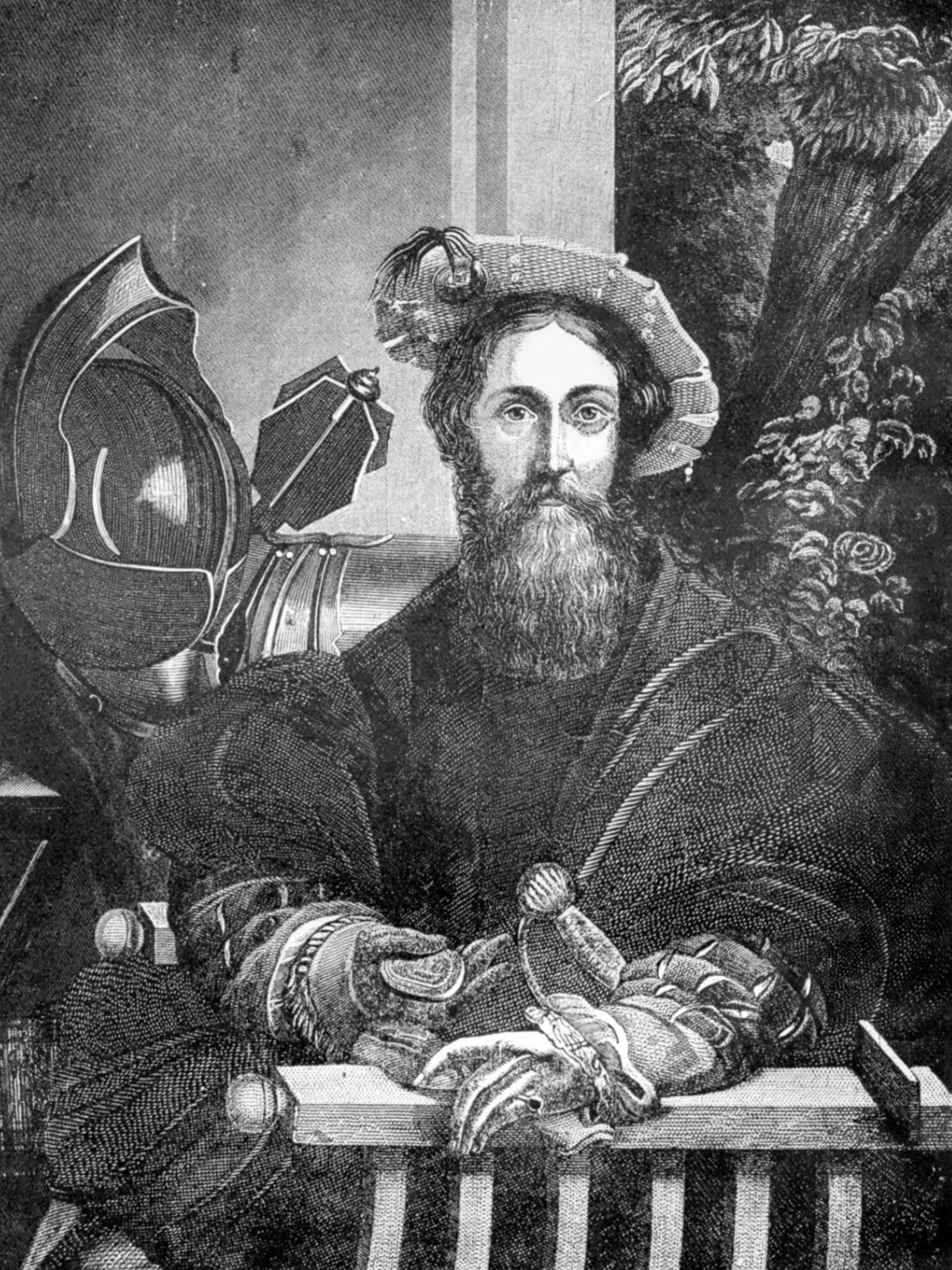

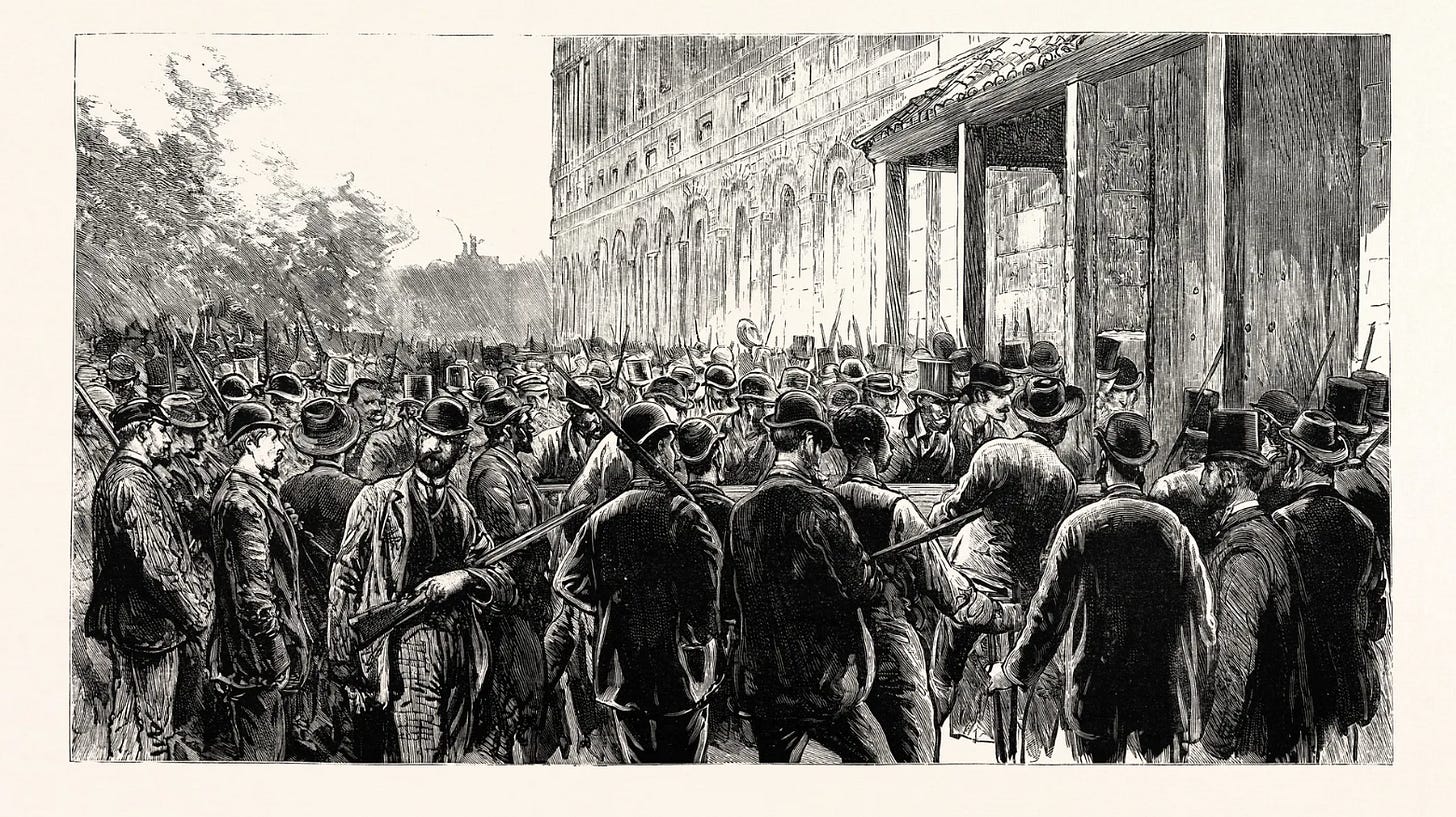
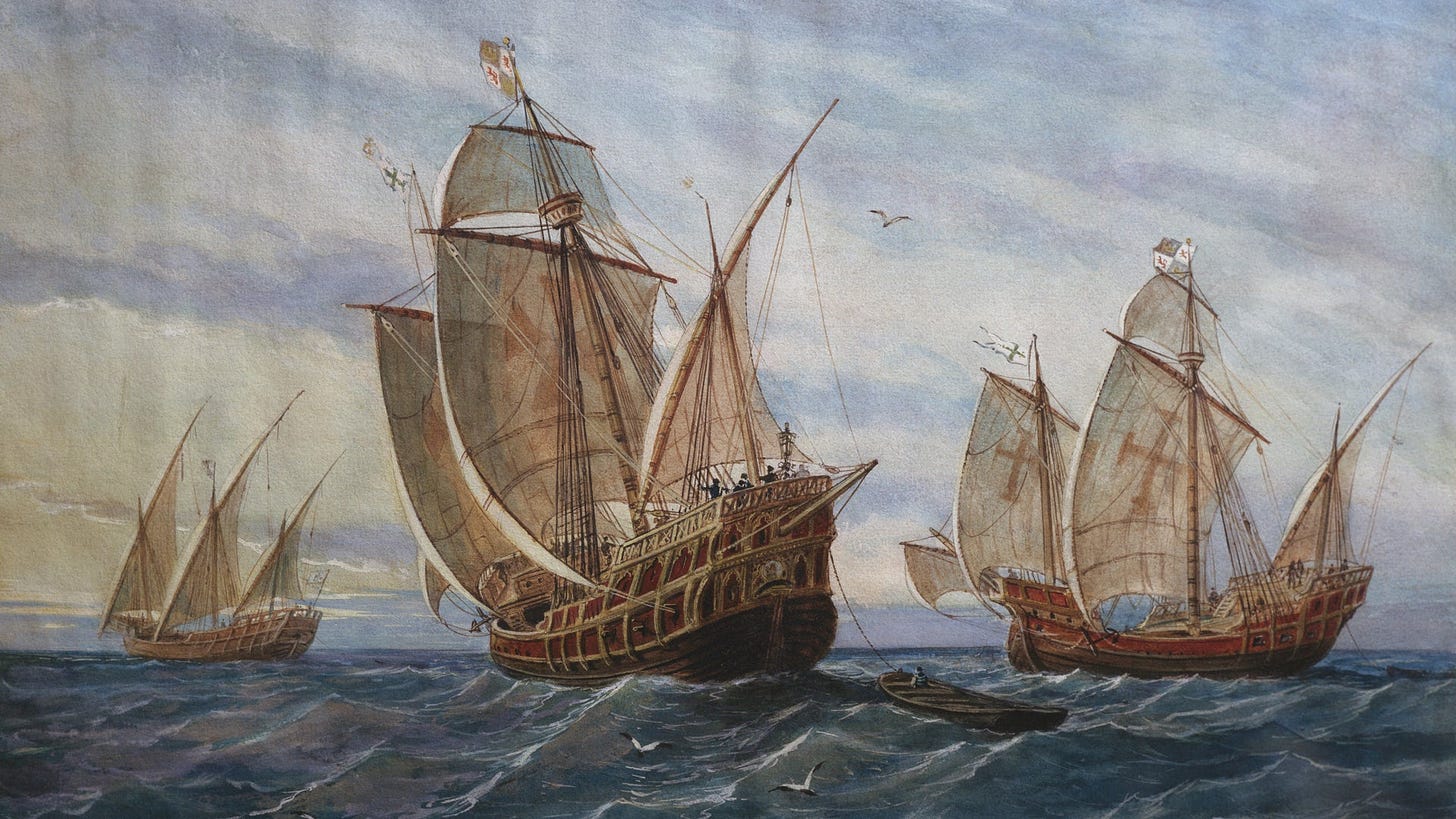
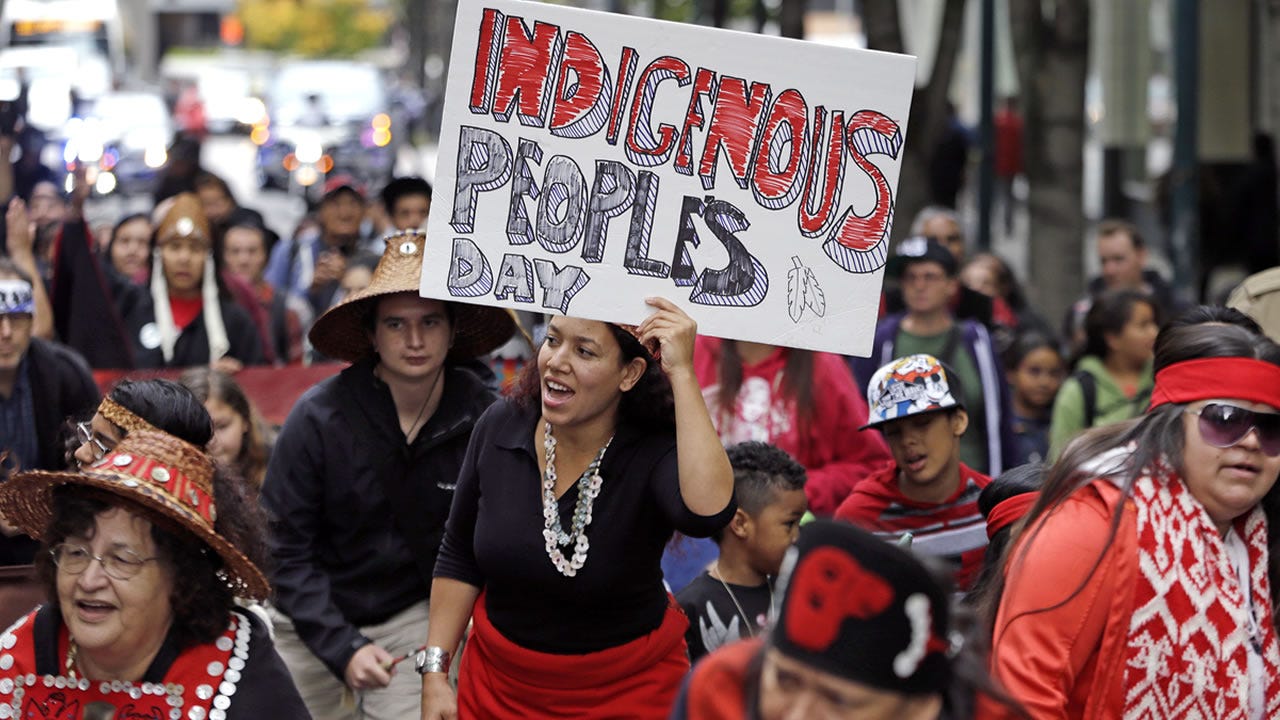
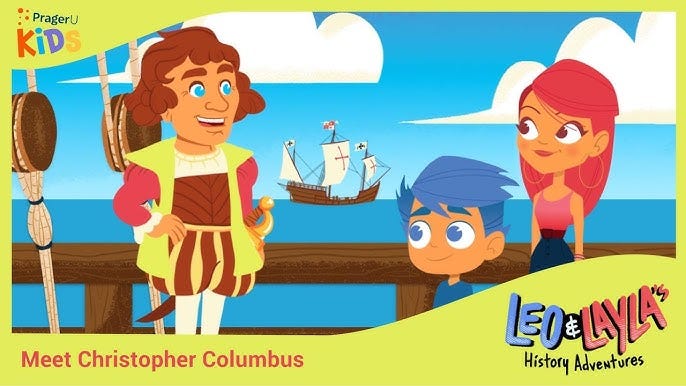
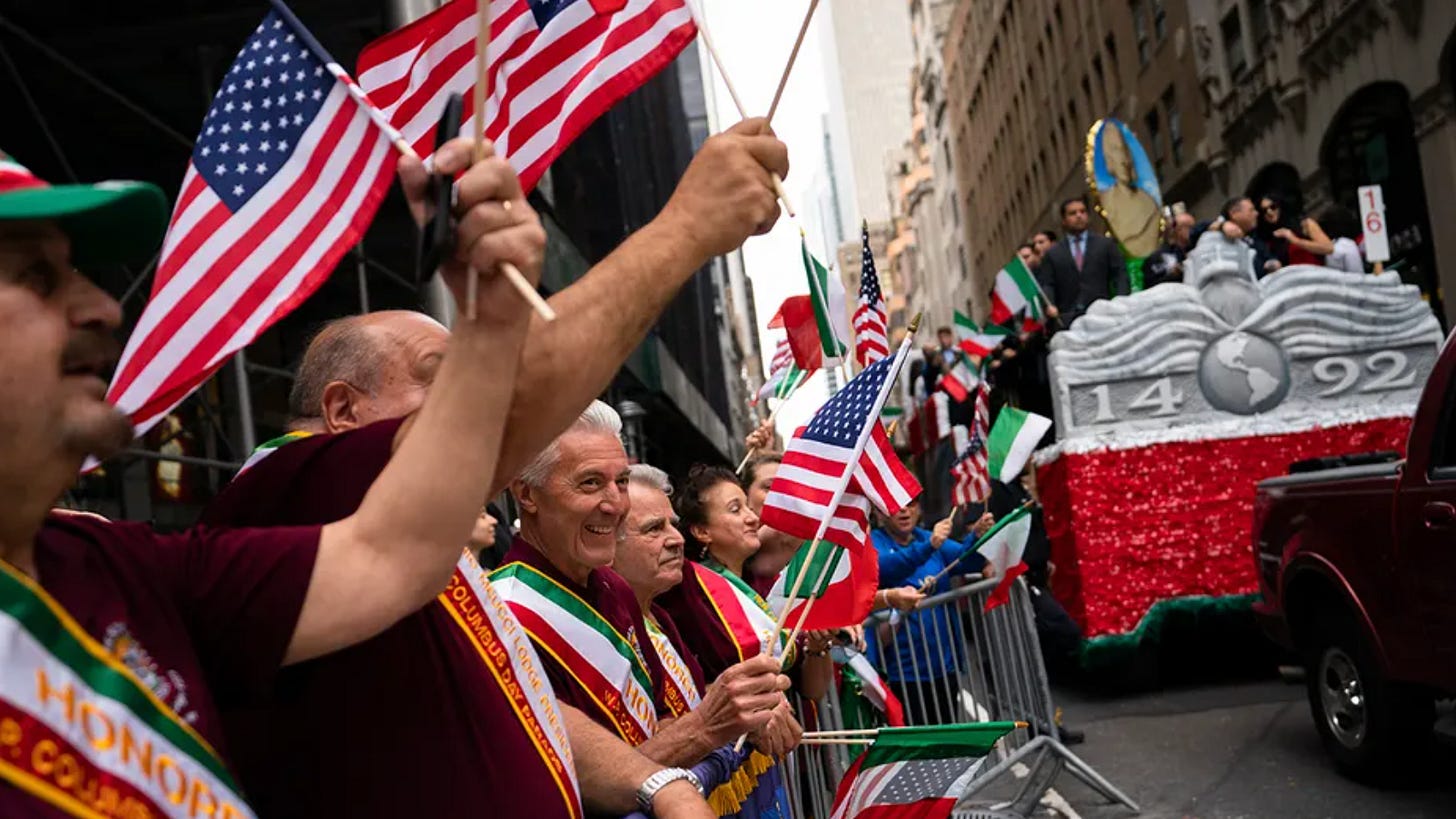

“Let us in the name of the Holy Trinity go on sending all the slaves that can be sold.”
Using religion to justify the mistreatment of others has been happening for far, far too long.
As for me and my house, we will celebrate and honor Indigenous Peoples Day. The story of Columbus can be told, accurately, and not erased. But he doesn’t deserve a holiday, to be celebrated, or to have monuments honoring him anywhere in America. Please spend the day learning about the Indigenous people in our country, who are still here btw, and gain new perspective on how we can reconcile with them to make our country better.